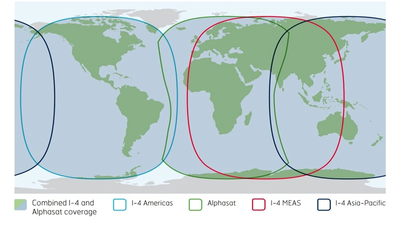Inmarsat Faces US, Chinese Competition in Maritime Safety
Britain's Inmarsat will lose its monopoly in maritime safety communications after the International Maritime Organization gave Iridium and China's BeiDou Navigation Satellite System the green light to develop competing systems.
Inmarsat's shares fell as much as 14 percent after U.S.-based Iridium said late Monday its network had been recognized as a provider of Global Maritime Distress & Safety System (GMDSS).
The stock was trading down 9 percent at 1345 GMT, while Iridium was up 4.7 percent in New York.
Inmarsat announced the approval of its own new safety service and congratulated Iridium and BeiDou, the latter of which it said had been successful with its request for GMDSS evaluation by a sub-committee of the IMO.
BeiDou could not be reached for comment.
Inmarsat said 160,000 vessels worldwide already used its safety service, which it provides at no charge.
All large vessel owners are required to have GMDSS, which puts Inmarsat onboard every large commercial ship, analysts at RBC Capital said.
"Clearly, losing the monopoly lowers the barrier to entry for Iridium long term," they said.
They said all evidence suggested very slow adoption of competing systems, and they expected Iridium to target new ships entering service from 2020.
Inmarsat said the IMO had formally approved its new service, which will be available to tens of thousands of vessels already equipped with its FleetBroadband or Fleet One communications terminals with a small additional device.
It also intends to create a new generation of standalone terminals that will combine communication and safety systems, with speeds in excess of 1Mbps.
Reporting by Paul Sandle














